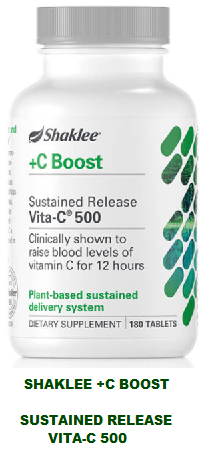Supplements
Sitemap
|
Vitamin C (Ascorbic Acid)
 This water soluble vitamin plays a role in many important bodily functions. Since it is water soluble, whatever the body does not use is constantly being passed out via the urine. While there are no known problems associated with an over-abundance of Vitamin C, other than possibly constipation, it is still a good idea to stick within recommended daily allowances. This water soluble vitamin plays a role in many important bodily functions. Since it is water soluble, whatever the body does not use is constantly being passed out via the urine. While there are no known problems associated with an over-abundance of Vitamin C, other than possibly constipation, it is still a good idea to stick within recommended daily allowances.
Probably the most important function Vitamin C performs is as an antioxidant. Oxidants are free radicals that if not controlled can significantly damage cells. Much in the same way that rust breaks down a car's exterior, so too can free radicals damage the skin and other body parts. When cells are damaged, inflammation can occur and chronic inflammation can be a risk factor for many health problems and issues. Antioxidants such as Vitamin C, are an effective tool in preventing chronic inflammation.
Vitamin C is crucial to the body's ability to produce collagen, which is an important protein that keeps skin damage minimal. Collagen can delay the development of wrinkles and saggy skin by helping skin hold onto its elasticity.
Vitamin C also expedites the body's ability to repair tissues so wounds and other injuries heal more quickly.
Vitamin C is necessary for the process involved with metabolizing folic acid, iron, tyrosine
and phenylalanine. The body also cannot properly make use of carbohydrates without Vitamin
C, and it is also needed to synthesize fats and proteins.
Vitamin C appears to help a person recover from the effects of a cold more quickly. However, unlike what many believe, this it cannot actually "prevent" a cold from developing, but it can alleviate the symptoms and perhaps accelerate the passing of a cold. It helps the body deal with a cold by increasing the production of white blood cells and antibodies.
Vitamin C can also strengthen artery walls and make them better able to resist the development of plaque build-up. It helps with the bone
marrow's ability to produce red blood cells and hemoglobin. And, Vitamin C helps keep the nervous system healthy.
Studies investigating Vitamin C's ability to slow down and possibly even prevent the formation of cataracts are ongoing and show promising results.
Sources of Vitamin C
Many fruits contain plenty of vitamin C, in particular citrus fruits such as oranges, tangerines, and limes, as well as, guava, lemons, papayas,
strawberries, black currants, grapefruit, pineapple, and mangoes. Many vegetables also contain Vitamin C including collard greens, sweet and hot peppers,
broccoli, tomatoes, Brussel sprouts, cabbage, potatoes, kale, spinach, and watercress. To preserve more of the Vitamin C content and make them more effective, it is best to eat these fruits and vegetables
raw or only slightly cooked. Be aware, however, that steam and exposure to light break down this vitamin.
The recommended daily intake of Vitamin C is 60 mg per day for adults. However, some researchers, such as Linus Pauling, have recommended much higher doses, but, these recommendations have not been scientifically confirmed and are based more on general anecdotal testimony, than on controlled research.
Symptoms of a Vitamin C Deficiency
The most well know condition associated with a Vitamin C deficiency is scurvy, a condition that used to be common among sailors who spent long periods at sea. Early symptoms of scurvy affect the mouth area including gums that bleed and teeth that become loose. As it progresses, muscles become weak and joints become painful.
Other signs that the body may be experiencing a deficiency of Vitamin C can include frequent infections, prolonged colds, easily bruised body parts, painful and/or swollen joints, nose bleeds, and anemia symptoms including tiredness and loss of skin color.
VITAMIN C AND THE CORONAVIRUS... COVID-19
While long touted as a defense against other illnesses, such as cold and flu, at this time, no scientific study has demonstrated any ability of Vitamin C to prevent COVID-19. However, there has been some anecdotal evidence that, under certain conditions, medically administered, high dose Vitamin C, MAY reduce recovery time in some patients.
Why Diets Don't Work | Sitemap
Vitamin C (Ascorbic Acid) - Copyright 2024 by Donovan Baldwin
Page Updated December 17, 2024
|



